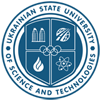Experience of Implementing Assistive Technologies in Ukrainian and Foreign Document and Information Structures
DOI:
https://doi.org/10.15802/unilib/2024_316712Keywords:
document and information institutions, library, assistive technologies, digital space, inclusionAbstract
Objective. The article examines the global experience of digital inclusion and the state of the creation of information spaces for people with special needs in leading document and information institutions of society. Methods. The research was conducted based on content analysis of 20 sites of US academic libraries and webometric analysis of 41 sites of Ukrainian document and information structures (libraries, archives, and museums) using the "Web Accessibility Checker" functionality. Monitoring of library sites was carried out during May 2024. Results. The conducted analysis proved that today digital inclusion in document and information institutions of libraries in the USA, Great Britain, and France is aimed at overcoming the lack of information resources for different groups of users, introducing computers with special software and assistive technologies for people with disabilities, and creating comfortable information space. This activity is only a desirable prospect for Ukraine's libraries, although work in this direction is unfolding. Conclusions. A conclusion was made regarding the importance of implementing assistive technologies in document and information structures and ensuring comfortable access to information for various categories of users, including those with special educational needs and people with disabilities. The development of digital inclusion and the creation of specialized products and services for special users is a strategic direction of the development of document and information institutions. Libraries are leaders in implementing and using assistive technologies among various document and information institutions. Compared to museums and archives, they have the greatest experience in serving users with disabilities and the most powerful potential for developing social inclusion and embodying diversity in the digital environment.
References
Abutayeh, N., & García-Orosa, B. (2021). Emerging services for the visually impaired in academic libraries. Library Philosophy and Practice, 6538. Retriеved from https://digitalcommons.unl.edu/libphilprac/6538/ (in English)
Biblioteca Digital Hispanica. (n.d.). Website. https://www.bne.es/es/catalogos/biblioteca-digital-hispanica (in English)
Deutsche Digitale Bibliothek. (n.d.). Website. https://www.deutsche-digitale-bibliothek.de/
Gallica. (n.d.). Website. https://gallica.bnf.fr/accueil/en/content/accueil-en
Hos, L. I. (2020). Stratehichne upravlinnia inkliuzyvnym osvitnim prostorom na prykladi «Sensoteky» [Strategic management of an inclusive educational space based on the example of "Sensoteka"] (Master’s thesis). Ukrainian Catholic University, Lviv, Ukraine. Retriеved from https://hdl.handle.net/20.500.14570/2202 (in Ukrainian)
Zholnovich, O. (2023, March 19). V Ukraini nalichuietsia 3 miliony liudei z invalidnistiu [There are 3 million people with disabilities in Ukraine]. Ukrinform. Retriеved from http://surl.li/qbnbwo (in Ukrainian)
Marina, O. Yu., & Marin, S. O. (2019). WCAG versions and accessibility of library web content. Bulletin of Kharkiv State Academy of Culture, 56, 86-95. https://doi.org/10.31516/2410-5333.056.08 (in Ukrainian).
National Library of Brazil. (n.d.). Website. https://antigo.bn.gov.br/en/explore/catalogues#
National Library of Canada. (n.d.). Website. https://library-archives.canada.ca/eng
Sensoteka. (n.d.). Website. https://lviv.travel/en/places/attractions/sensoteka
Pasichnyk, V., Shestakevych, T., Kunanets, N., Rzheuskyi, A., & Andrunyk, V. (2019). Accessibility analysis of scientific libraries web resources. ECONTECHMOD. An International Quarterly Journal on Economics of Technology and Modelling Processes, 8(2), 9-16. Retrieved from https://bibliotekanauki.pl/articles/411343 (in English)
Prykhodko, L. (2020). Kulturna polityka komisii Yevropeiskoho Soiuzu [Cultural policy of the Commission of the European Union]. Archives of Ukraine, 3(324), 7-31. Retrieved from https://au.archives.gov.ua/index.php/au/article/view/73 (in Ukrainian)
Times Higher Education. (2024). World University Rankings 2024. Retrieved from https://www.timeshighereducation.com/world-university-rankings/2024/world-ranking (in English)
Tiurkedzhy, N. S., Davydova, I. O., Marina, O. Y., & Marin, S. O. (2022). Accessibility Analysis of Digital Libraries and Specialized Library Resources. University Library at a New Stage of Social Communications Development. Conference Proceedings, 7, 218-231. https://doi.org/10.15802/unilib/2022_270121 (in English)
Viittomakielinen kirjasto. (n.d.). Website. https://viittomakielinenkirjasto.fi/
Web Accessibility Checker. (n.d.). Website. https://websiteaccessibilitychecker.com/
World Health Organization. (2017). Global research, innovation and education in assistive technology: GREAT summit 2017 report. World Health Organization. Retriеved from https://iris.who.int/handle/10665/259746 (in English)








